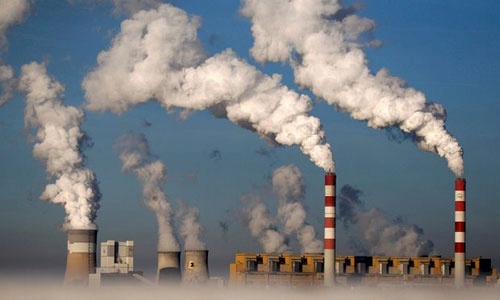
Climate Injustice: The World's Wealthy Elite Emit More Than Dozens of Countries
SadaNews - Just before the global climate conference in Belém, Brazil, this month, a new study by Oxfam revealed that the carbon-intensive lifestyles of the wealthy, particularly in the United States, are wasting what remains of the world's carbon budget.
The study titled "Climate Robbery: How a Powerful Few are Pushing the World into Disaster" provides updated and comprehensive data and analyses, showing that an individual from the wealthiest 0.1% produces more carbon pollution in one day than the poorest 50% of the world’s population does in an entire year.
The study details how billionaires leverage their political and economic influence to keep humanity dependent on fossil fuels for maximum personal profits, emphasizing that if everyone emitted carbon equivalent to the emissions of the world's 0.1% richest, the carbon budget would be exhausted in less than three weeks.
The carbon budget refers to the total maximum limit of greenhouse gases that can be released into the atmosphere within a set timeframe to maintain a global temperature within a specific level.
According to the study, it is not only excessive carbon consumption that is at play; a handful of the wealthy are actively investing in the most polluting companies and profiting from them.
These billionaires and millionaires belong to a category that consumes the safe carbon space of the planet at a rate 183 times the global average.
The study found that the average billionaire produces 1.9 million tons of CO2 equivalent annually through their investments. These billionaires would need to travel around the world nearly 10,000 times in their private jets to emit this amount.
Nearly 60% of billionaires' investments are classified as being in sectors with a significant climate impact, such as oil or mining, and the total emissions from the investment portfolios of just 308 billionaires exceed the total emissions of 118 countries, according to the study.
Amitabh Behar, the Executive Director of Oxfam International, stated, "The climate crisis is a crisis of inequality. The wealthiest individuals are funding the destruction of the climate and profiting from it, leaving the global majority to bear the severe consequences of their unchecked power."
The richest 0.1% emit an average of 2.2 tons of CO2 daily, equivalent to the weight of a rhinoceros or an SUV, while a Somali citizen consumes just about 82 grams daily, less than half a cup of rice. In contrast, the global average emissions are about 12 kilograms per day.
The report points out that luxurious lifestyles, including private yachts, fancy planes, and massive mansions, along with investments in polluting sectors, significantly increase individuals' carbon footprints.
The report also estimates that if 308 global billionaires were considered a country, they would rank 15th in the world in terms of emissions. Since 1990, the share of emissions from the wealthiest 0.1% has risen by 32%, while the share of emissions from the poorest 50% has declined by 3%.
The report notes that the wealthiest individuals fund polluting industries and use their political influence to delay or prevent climate policies, exacerbating the suffering of the poor, especially in the Global South.
The report also confirms that emissions caused by the wealthy could result in about 1.3 million heat-related deaths by the end of the century and lead to economic losses of up to 44 trillion dollars in low- and middle-income countries by 2050, with more severe damages in Global South nations.
To stay within the 1.5 degrees Celsius threshold, the report states, the richest 0.1% of the world's population must reduce their per capita emissions by 99% by 2030.
The report concludes that taxes must be imposed on the wealthy and polluting industries, and their political influence must be curtailed, to ensure the participation of those most affected by the climate crisis in decision-making.
It also calls for enhancing civil society participation and building an equitable economic system that prioritizes people and the planet by rejecting the prevailing neoliberal economy and moving towards a sustainability- and equality-based economy.
Source: Agencies

Scientists Attempt to "Intercept Cancer" Before Its Formation.. Know the Details

American Fact-Checking Platform Exposes Trump's Exaggerations in State of the Union Addres...

How Mourinho Deceived Everyone and Watched the Match Between Real Madrid and Benfica from...

Fat Loss Improves Blood Pressure and Supports Immunity

Galaxy S26 Armed with a Smart Feature to Combat the Most Dangerous Threats to Smartphones

Discovery of Microplastic Particles in 90% of Prostate Cancer Cases

Artificial Intelligence Diagnoses Children's Brain Tumors with 92% Accuracy Without Surger...

